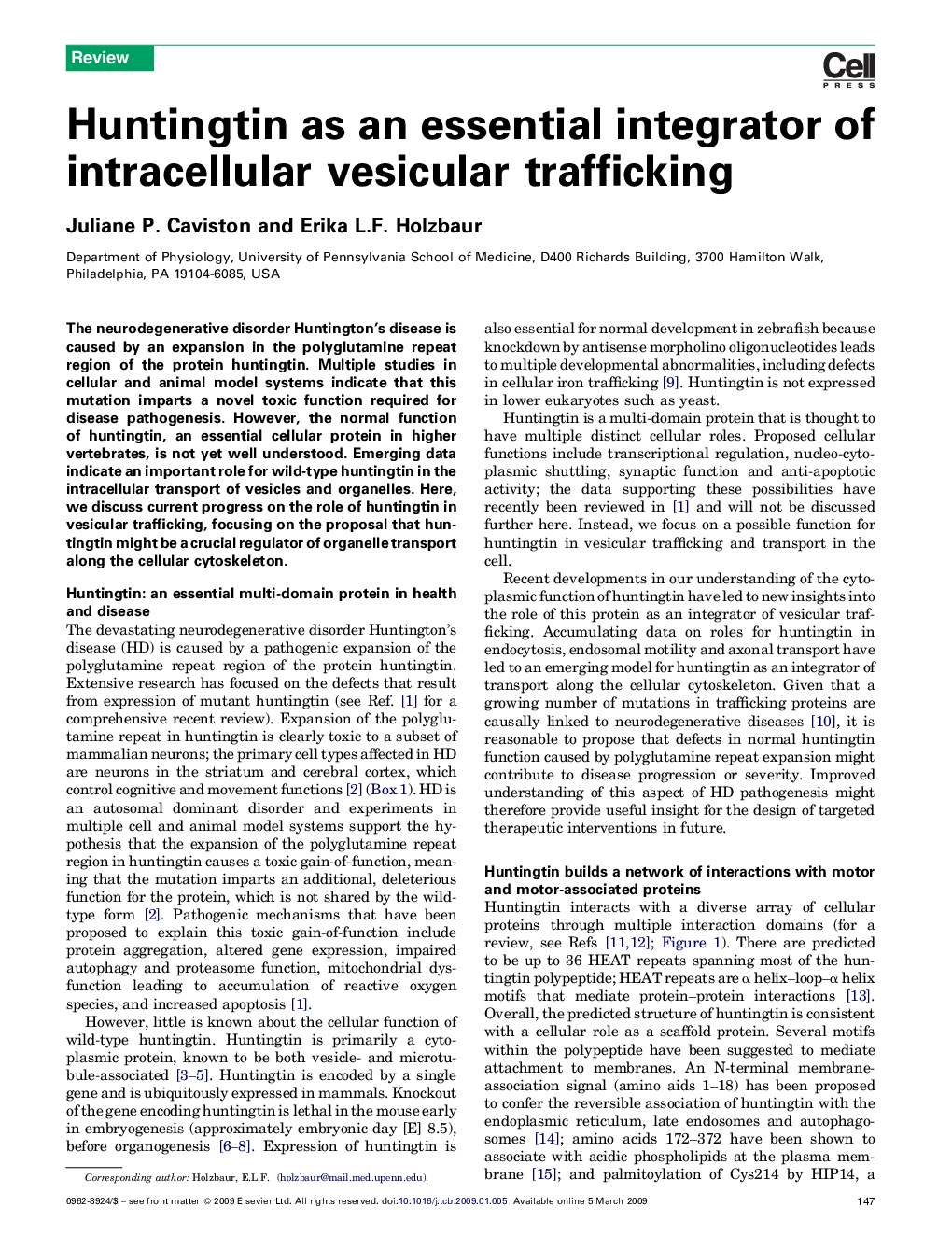| Article ID | Journal | Published Year | Pages | File Type |
|---|---|---|---|---|
| 2205057 | Trends in Cell Biology | 2009 | 9 Pages |
Abstract
The neurodegenerative disorder Huntington's disease is caused by an expansion in the polyglutamine repeat region of the protein huntingtin. Multiple studies in cellular and animal model systems indicate that this mutation imparts a novel toxic function required for disease pathogenesis. However, the normal function of huntingtin, an essential cellular protein in higher vertebrates, is not yet well understood. Emerging data indicate an important role for wild-type huntingtin in the intracellular transport of vesicles and organelles. Here, we discuss current progress on the role of huntingtin in vesicular trafficking, focusing on the proposal that huntingtin might be a crucial regulator of organelle transport along the cellular cytoskeleton.
Related Topics
Life Sciences
Biochemistry, Genetics and Molecular Biology
Cell Biology
Authors
Juliane P. Caviston, Erika L.F. Holzbaur,
